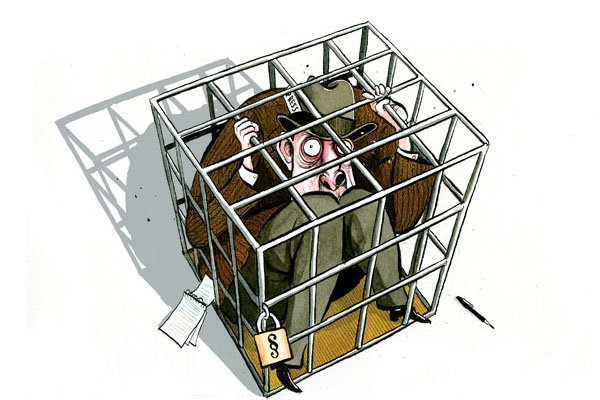The Spectator will take no part in state-sponsored press regulation
 Lord Justice Leveson reports at 1.30pm today and David Cameron has blocked out 90 minutes in parliament to respond. The big question is: will introduce state licensing of the media? A group of 42 Tory MPs wants him to and No.10 apparently thinks they will rebel if he doesn’t. But this would mean revoking Britain’s 317-year history of press freedom, and give Parliament power to set the parameters under which the press operates. If the state seeks to compel publications to join the government scheme, then they face a choice: sign up, or defy the new law? In tomorrow’s Spectator, we make our choice.
Lord Justice Leveson reports at 1.30pm today and David Cameron has blocked out 90 minutes in parliament to respond. The big question is: will introduce state licensing of the media? A group of 42 Tory MPs wants him to and No.10 apparently thinks they will rebel if he doesn’t. But this would mean revoking Britain’s 317-year history of press freedom, and give Parliament power to set the parameters under which the press operates. If the state seeks to compel publications to join the government scheme, then they face a choice: sign up, or defy the new law? In tomorrow’s Spectator, we make our choice.
We say in our leading article that we would happily sign up to any new form of self-regulation which the industry proposes, no matter how onerous. But we would have no part in any regulatory structure mandated by the state. That is to say: we would not attend its meetings, pay its fines nor heed its menaces. To do so would simply betray everything that The Spectator has stood for since 1828.
I would say that we thought long and hard about this, but it wasn’t a tough decision. For anyone who works at The Spectator, it’s a no-brainer. In the basement of 22 Old Queen St lie our archives, showing how we have been implacably opposed to the principle of state regulation of the press — not because it protects the press, but because it protects the public. This is a distinction that leaders from Thomas Jefferson onwards have understood. In 1829, we lambasted the Sunday Times for putting press freedom at risk with sloppy libels. In 1833 we took aim at Lord Brougham, then Lord Chancellor, for doing what Nick Clegg is doing now: saying how much he admires the free press, while conspiring to undermine it with legislation. The canard of ‘statutory regulation’ was raised in parliament in 1952. ‘Everyone who really understands what freedom of the press means and cares about it,’ we argued, ‘must resist such a proposal to the uttermost’.
Given our long and consistent line, we at 22 Old Queen St felt The Spectator would be unable join any press regulatory scheme mandated by the government. It’s unclear what penalities would be imposed on those publications that refuse, on principle. As editor, I’d probably find out.
Not, I stress, that I expect it to come to this. The more you consider the implications of statutory press regulation, the more unworkable it becomes. Can you really regulate the press, but not the internet? And can you really draw a distinction, given that many newspapers will become digital-only in coming years? What happens to a new publication: does it apply for a license? What counts as a new publication? And what of the likes of Guido who are based abroad? And what impact would any of this have on the egregious hacking crimes which were described by Lord Leveson?
If the state grants itself power over the press now, for the first time since 1695, then power over digital would follow. It is technologically possible; China is the world leader. But until recently Britain was the world leader in the notion of press freedom, with a tradition dating back to Milton, and it’s high time these principles were reapplied for the digital age. Perhaps in the proposed Bill of Rights.
David Cameron is a friend of liberty but, more importantly, he’s a pragmatist. He knows that hacking is already illegal, and that statutory regulation would achieve nothing more than to crush liberties that have survived every one of his predecessors. It’s certainly something in which The Spectator could play no part.


 Votes : 0
Votes : 0









